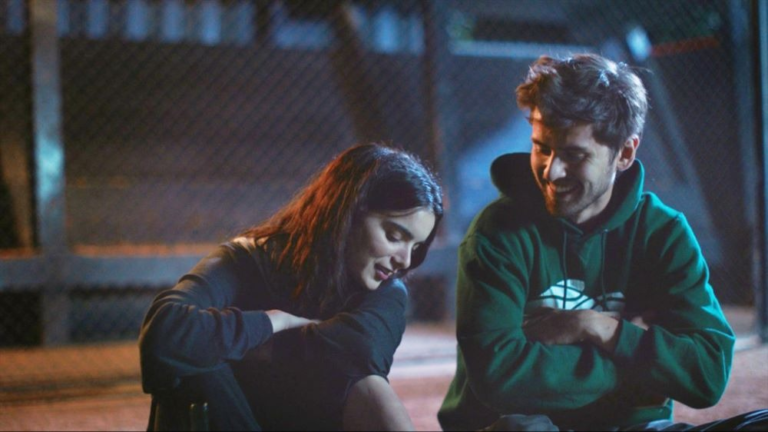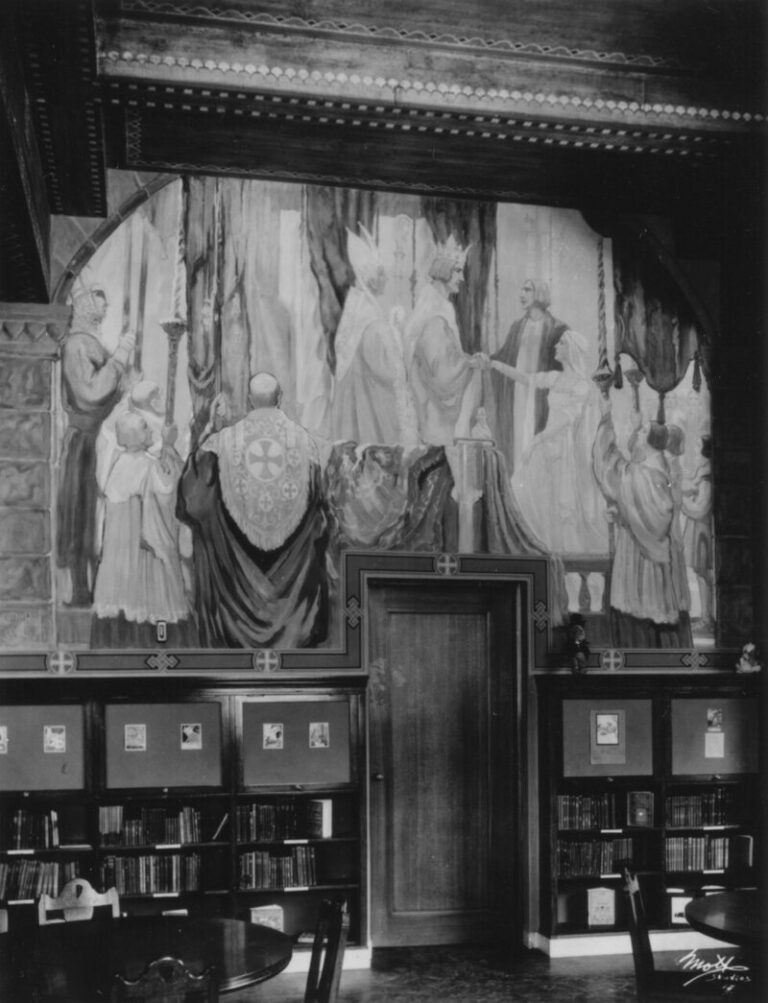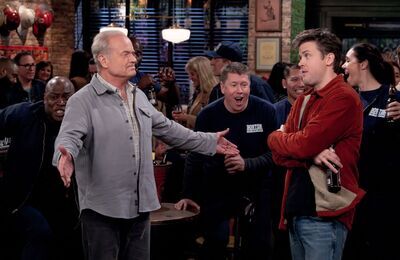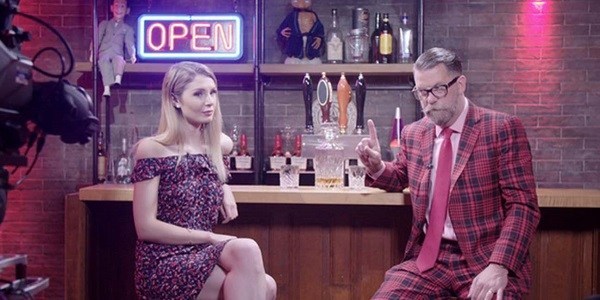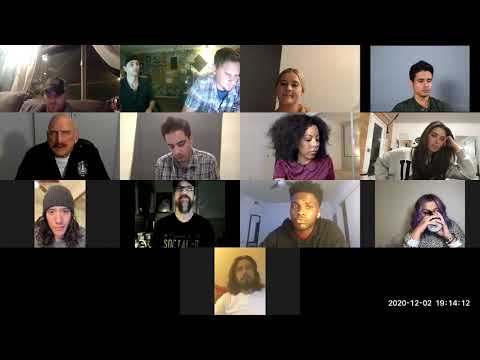Berlinale 2021: Natalie Morales And Mark Duplass On LANGUAGE LESSONS
Adam (Mark Duplass) is getting ready for yet another regular morning when he sees a young woman waiting for him in the living room. She is not, however, physically there, her face on the screen twisted in slight confusion, mirroring the one of the man. The predicament was created by Adam’s husband, Will, as a surprise, a thoughtful gift after Adam briefly mentioned his desire to expand the Spanish he learned in school. That is where Cariño (Natalie Morales), a Spanish teacher offering online lessons from Costa Rica, comes in.
What follows in Language Lessons, Natalie Morales’ feature directorial debut, is a poignant dive into the many merits of companionship and how human connection can help heal the deepest of wounds. Filmed entirely during the pandemic, with a swift production time of four weeks, the film is built from several Zoom calls and – despite the current saturation of video-call based content – manages to avoid fatigue through the natural chemistry between the leads and the thoughtful approach to the existential themes it dwells on.
With the world premiere of Language Lessons at this year’s Berlinale, Natalie Morales and Mark Duplass sat down to discuss the experience of crafting a timeless story amidst the COVID-19 restrictions, their long-lasting partnership, and platonic relationships between men and women.

The film is almost entirely spoken in Spanish, with only a few minor bumps here and there. On the choice:
Natalie Morales: We were worried that it would be very boring if we were to watch Adam learn rudimentary Spanish and that people would walk out after five minutes, we wanted to have them be able to communicate from some decent level. And the truth of the matter is that this was roughly where my Spanish was.
Mark Duplass: Yeah, and I would say what grew out of it really was this desire to try to use this natural connection that Natalie and I felt that we had and, you know, we were friends but not very close friends and I always love the idea that if you make a movie with someone, particularly an improvised movie, even though we wrote some of the scenes, some of it was improvised, that you could see our friendship start to form on screen as it’s happening and that is palpable, you know, in the way that movies like Before Sunrise do so well. And so, for us, the format was really great, just to be confined to the two of us and we just took a bet that we hoped it would be interesting to watch, but more importantly we didn’t tell anybody. We were making the movie because if it sucked we could just bury it.
Regarding having Cariño live outside of the US, breaking the usual pattern of having Latin American characters move into the country:
Natalie Morales: I grew up going to Costa Rica a lot and I have family there, very close family and friends, so I’m really familiar with Costa Rica – it’s a place I love very much and a place I would absolutely live in. I think it’s nice to have someone who didn’t come to the United States, they went to Costa Rica. It is a really nice life in Costa Rica.
Mark Duplass: It was a really fun thing. I initially came up with just the basic bare-bones concept, then called Natalie immediately for her to be my partner in this. We talked for a few hours and jammed out some story stuff and then we went away and decided to fill out our characters separately. And that’s when Natalie came up with the name Cariño, and the backstory, particularly the Costa Rica stuff, and Cuba and all that. And I just loved it, all it was such an interesting journey that I hadn’t seen before.

Much of Language Lessons centres around Cariño’s role in supporting Adam in his grief and how this unexpected relationship evolves from a mere professional setup to an engulfing connection. On how people can support each other through moments of grief and pain and how the film managed to build Mark and Cariño’s relationship:
Mark Duplass: In my early 20s, I developed these very strange body pains from too much editing, too much playing music, and they got really debilitating. And my dad, who loves me and wanted to support me, did not know how to fix it – I could tell it was really hard for him. But what he did, which I thought was so great, is he just stayed with me, he would just go with me to the doctor’s appointments and he would listen, and he would validate my confusion and he would be just as confused as I was and he would share that with me and he would not try to fix it because he didn’t know what to do. And he was just my copilot and he sat next to me, and, in hindsight, it was the best thing that I ever got which is that he kept showing up and he just didn’t leave. And I think that there was a part of me that was putting that into at least Adam, and how he was going to deal with Cariño.
Natalie Morales: She is very nice. And then there’s a wall and you don’t get through it unless you dig a little deeper which she’s not used to anybody doing, especially not one of her students. You will never know that there’s a wall because she’s very personable and then when you keep going, that’s when you, that’s when you hit that wall and she’s like “no, this was not our deal, this is not our relationship”, but there’s a sense of humanity there for her and a sense of understanding for what’s going on, you know, with Adam. I think she lets that wall down for a moment because she knows that this person desperately needs something that only she can provide at that moment.
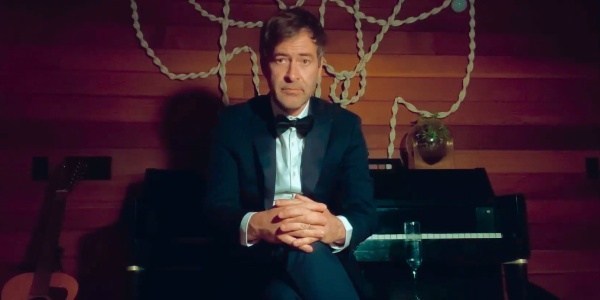
Hollywood and the entertainment industry, in general, are still heavily permeated by gatekeeping. Here’s Morales on being a Latina in the entertainment business, having the chance to make her feature directorial debut, her partnership with Duplass and how she managed to navigate the many biases in Hollywood:
Natalie Morales: I think I have a very different experience than my Latino brothers and sisters because I have a Mark Duplass. To be honest with you, he has always been my shepherd and he has always been my supporter from the very, very beginning. One of my first agencies would not take a meeting with me to direct while I was with them as an actor and I had already directed music videos. I was really trying to do that and within my own agency, they would not let me meet with an agent for directing.
Different people in my life have supported me, but nobody has done what Mark Duplass has done which is go “I believe in you and I’m going to give you a chance and I’m going to give you an opportunity to direct a show on HBO, and then to do another one but next year”. I feel very very lucky to have met him and to have had him. I think about it all the time and this is not news to him, I have told him this a lot, [tears up] but it’s making me emotional because it really is so, so big to me.
Everybody’s going through their own bowl of shit, and in every possible way, and I think that makes it hard to empathize. You get overwhelmed with news and you have enough stuff going on in your life and you are like, “I literally do not have the capacity to care about anybody else”. And I think that, hopefully, what our movie says is that even when you feel that way, what you don’t realize maybe is that the connection with another person is the healing balm. It is extending that little piece of empathy and understanding to somebody else. Actually, it is mutually beneficial.
Mark Duplass: I would just say what you’re feeling in this movie, in my opinion, has something to do with the level of humour and connection you see between the characters and the level at which they’re willing to talk, frankly, about some of the dark stuff when it comes up and deal with it. And the warmth, the big hug that the movie ultimately is, comes directly from Natalie and her spirit and that’s the reason why I wanted to work with her.
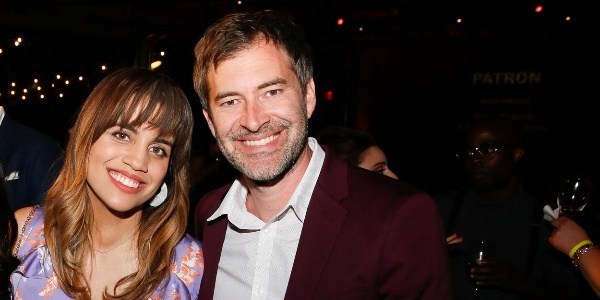
The relationship between Adam and Cariño is an entirely platonic one, their connection entirely detached from any romantic ideations. This fresh take on a relationship between a man and a woman is one of the highlights of Language Lessons. On the choice:
Mark Duplass: You know we talked about it pretty early on, and there was this concerted decision that we like the idea that Adam’s character would be gay so that romance would specifically not be on the table. Natalie really pinpointed pretty early on that there really hasn’t been a film that deals with a platonic male-female relationship in this way, that truly deep dives into it. And what I’m realizing is that I’ve been married to my wife for 20 years, so, in this way, romance is off the table for me completely, and the way that I am going to connect with someone is only platonically, but I want to go as deep as I possibly can. I don’t want to just be a friend relationship that’s like the second or third relationship in the movie, I want that to be the new primary relationship in the movie of my life. And I think that was the real attraction to me.
On the writing process and improvising in Spanish:
Natalie Morales: We did write a lot of the movie, especially all of the Spanish parts because Spanish is my first language but I mostly speak English and it’s difficult for me to improvise in Spanish and the same for Mark. We also did really want to write the point of each scene, but there was quite a bit of improvisation in the movie. Because we wanted it to feel as natural as it could. So once we knew the points we had to get across, we did lean on that quite a bit in some scenes.
On creating a film during the COVID-19 pandemic and how the message of resilience resonates with current times:
Mark Duplass: It’s a deep compulsion that I have, to create. And it is a healthy thing but also a somewhat unhealthy thing. I think it comes from something inside of me that, whatever you want to call it. My therapist calls it a little hole that I’m trying to fill. And I know that about myself but at the same time, I’m able to turn it towards something productive towards a lovely collaboration with Natalie and a nice new friendship and connection and hopefully a piece of art for people moving forward.
Natalie Morales: I try to do that with everything that I do, put something in the world that will do something for people, whether it’s making them happy for two seconds, whether it’s making them think about something. I guess every artist or filmmaker wants to leave the world a better place through their art. But I know how deeply and, maybe unknowingly, art does affect culture and does affect the way people see the world. I always say, in the United States, Will & Grace was on TV and made gay relationships a thing that was in your living room and then, 10 years later, Don’t Ask Don’t Tell got repealed and it’s correlated. So when you put things on TV that you want to see in the world, the world starts to change and that is always really important to me. It’s not the first thing I think about when I make art, but it is something that is always in my head and in my heart.
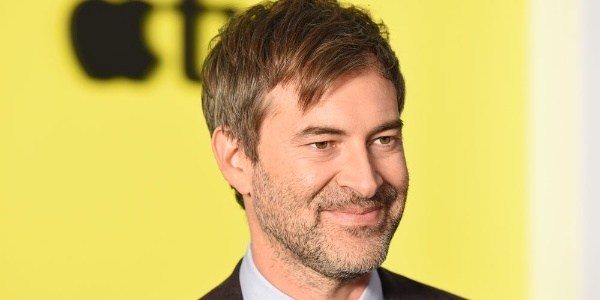
On the inspiration for the film, how spontaneity nurtures creativity and their professional and personal partnership:
Mark Duplass: [The idea] came during the pandemic. I was starting to take Spanish lessons online with a teacher in Guatemala, about a month into the pandemic, and I noticed how the connection was just unexpected and interesting and the things that we talked about were different than I anticipated. And, in particular, I noticed that we both hated small talk so we started talking about other things and it went a little deeper more quickly than I anticipated and I thought, well that’s interesting, a zoom connection may actually be facilitating something deeper. So that was the seed of it but there was really nothing more than that, when I called Natalie, which is a testament, I think, to our creative trust in each other and our friendship.
I really believe that sometimes you spend five years making a movie and that preparation, and all that thought really helps the movie become distilled into the best version of itself. But sometimes you do that, and you beat the movie of all of its youth, and rough edges. And, you lose what I call the falling in love period of the movie, which is, I equate that to dating, you know, and Natalie and I made this movie in the first three to five dates, where it was still fresh and we were still getting to know it and we were still in love with the movie idea before it had a chance to grow sour. I really believe in that process and what you lose in preparation you gain in spontaneity and inspiration and excitement.
Natalie Morales: Yeah, we were friends, we had worked together before and I had directed episodes that he wrote but it wasn’t like we were working side by side all the time, so we had never really worked together in this way. What I knew was that, from the short conversations we had, and from the time that I had known Mark, was that we could challenge each other, and I knew that might make for a good movie, and a good connection and good chemistry so I’m glad it paid off.
Mark Duplass: But we still didn’t tell anybody in case it sucked.
Natalie Morales: Yes, exactly.
Language Lessons screened as part of the Berlinale Special session of the Berlinale 2021.
We want to thank Mark Duplass and Natalie Morales for taking the time to speak with us.
Does content like this matter to you?
Become a Member and support film journalism. Unlock access to all of Film Inquiry`s great articles. Join a community of like-minded readers who are passionate about cinema – get access to our private members Network, give back to independent filmmakers, and more.
Join now!
